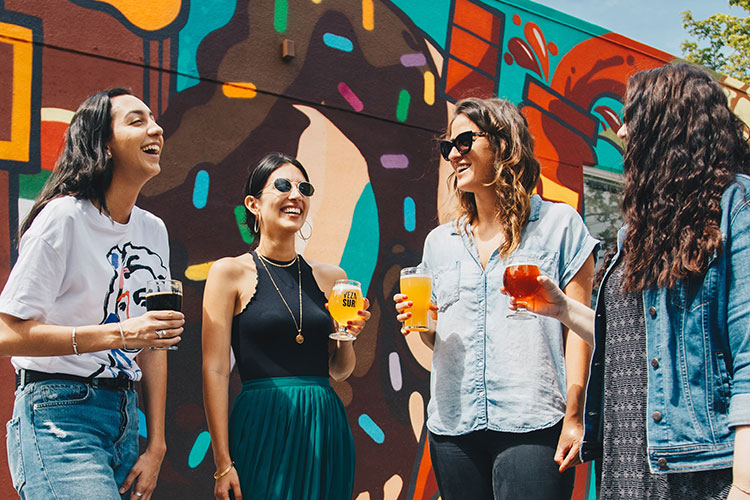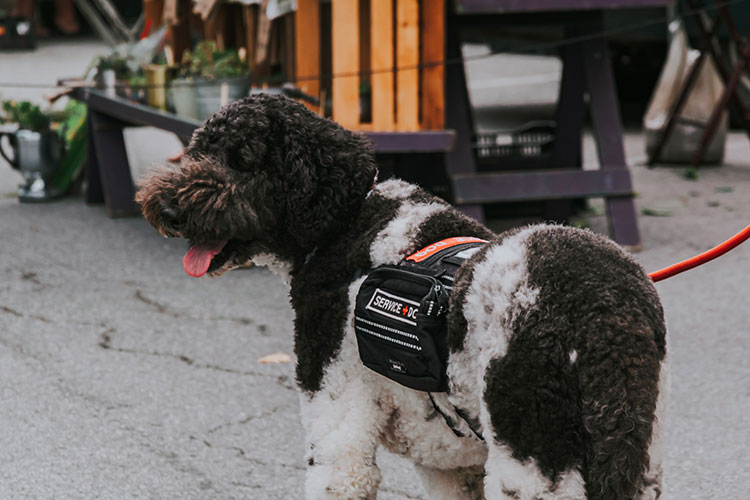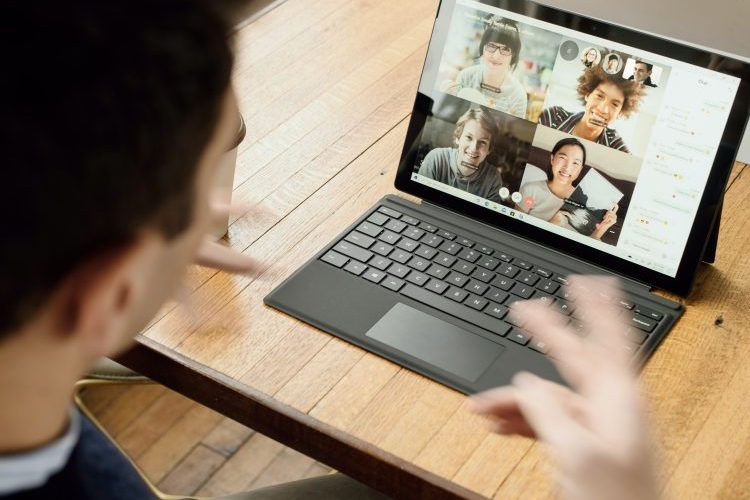
The first few times I met someone who is blind, I have to admit I saw the disability before I saw the person. I just wasn’t prepared for meeting someone different than me, and I didn’t know what way to act. Later I learned that some tendencies, while natural and good-intentioned, also are indicative that I’m not seeing the person for the capable and independent person they truly are. I came across some helpful tips about this, and thought I’d share them in this compiled list. As someone who used to see the disability before seeing the person, I wish I had read a guide like this before I met someone who is blind.
- If you extend your hand for a handshake, you’d need to announce it. “It’s nice to meet you. I’m extending my hand to shake yours.”
- If they have a sighted companion that is walking with them or guiding them, that’s a completely different person. Speak directly to the blind person – do not relay communication through someone else.
- It’s ok to offer help. It’s ok for them to not need it. If you do offer assistance, do so in a way that is respectful and non-intrusive, and wait for their response to your offer instead of assuming it’s a yes.
- A common way to describe where things are is to use clock positions. If at a dinner meeting at a restaurant, for instance, you could mention “your water is at your 2 o’clock”.
- Also, at restaurants, while you might want to offer to read the menu, don’t assume you should order on their behalf.
- If you leave the room, or enter the room, say so. To just come and go without doing so can be considered sneaky.
- If someone takes you up on an offer to guide them, tell them “here is my elbow” for them to take on their own. It’s not on you to grab them.
- When giving directions, pointing doesn’t work. Use descriptive directions like “take a right at the next street”.
- Half-open doors can be kind of dangerous. If you’re in a blind person’s home, don’t leave a door half-open – either close it all the way or open it all the way.
- Speak at a normal volume that you would for anyone else. Blindness doesn’t mean deaf!
- No need to constantly apologize for using words like “look” or “see,” as they are part of common language.
Advice for meeting a blind person with a guide dog

Another thing you may encounter when meeting someone who is blind is their guide dog. A service animal is much different than a pet, and there are some additional tips I’ve gather for that.
- Do not distract the dog: Guide dogs are trained to be focused on their work and to ignore distractions. If you try to pet or interact with the dog, it could distract them from their important duties and put their handler in danger. It’s important to treat guide dogs with the same respect and professionalism that you would give to their human handlers.
- Ask for permission: If you want to interact with a guide dog, always ask for permission from the handler first. They may be happy to let you meet the dog, but it’s important to follow their lead and respect their wishes.
- Do not feed the dog: Guide dogs are trained to follow a strict diet and feeding schedule. Giving them extra treats or food can disrupt their training and lead to health issues. Avoid offering the dog any food, even if it seems friendly.
- Don’t call the dog’s name, make eye contact with a working dog, or attempt to give the guide dog directions. If you’re meeting with a blind person who has a dog, talk to the person only.
Children and Guide Dogs
I’ve known a few kids who think every dog is there for them to pet them. Guide dog aside, it’s important to teach children to ask before petting another person’s dog. But especially for guide dogs, it’s important to explain to your child that guide dogs are not pets, but are working animals that help people with disabilities. Teach them that it’s important to be respectful of the dog’s job and not to pet or distract them while they’re working. Encourage them to ask questions and learn more about guide dogs and their important role in society.
In summary
I hope that helps someone before they meet a blind person for the first time. Again, I wish I had been aware of those items – I would’ve felt a little less ignorant.
I’m still learning, and I welcome feedback. If you have any thoughts, questions, comments, or corrections, email me or leave a comment via Mastodon.

